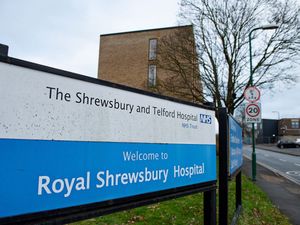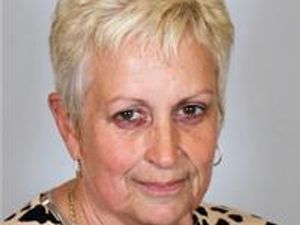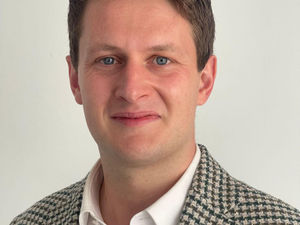Shrewsbury and Telford hospitals trust fined £1.3 million over deaths of patients
The health trust which runs Shropshire's major hospitals has been fined £1.3 million after pleading guilty to failings in care that led to the deaths of two patients.

Shrewsbury and Telford Hospital NHS Trust (SaTH) appeared in court on Wednesday after an inquiry into two incidents that led to the deaths of patients Mohammed Ismael Zaman, 31, known as ‘Bolly’, in 2019, and Max Dingle, 83.
Mr Zaman, a trainee pharmacist from Telford, was undergoing treatment at the renal unit at Royal Shrewsbury Hospital on October 18, 2019, when his dialysis machine became disconnected. He died after losing three pints of blood in seven minutes.
Retired policeman Mr Dingle died after his head and neck became trapped while lying in a hospital bed at the same hospital on May 3, 2020. Staff found him with his body off the bed, his legs on the floor and his face purple. Staff released him and lay him on the floor. He went into cardiac arrest and died. There was a 'do not resuscitate' order in place.

In delivering the sentence, District Judge Paul Goldspring said that this case would further "erode public confidence" in SaTH. He cited that the hospital was rated "inadequate" in its most recent inspection and said: "I'm satisfied the trust has demonstrated a poor health and safety record in its management of this hospital."
The trust, which was recently the subject of a highly critical report into the maternity services it offered between 2000 and 2019, admitted the charges through its barrister at Telford Magistrates' Court.
SaTH pleaded guilty at Telford Magistrates Court to three charges of failing to provide care and treatment in a safe way, resulting in harm or loss on or before dates in October 2019 and May 2020.
Failings were admitted in both cases - it was accepted that official guidance was not followed in keeping dialysis lines clear in the case of Mr Zaman. And it was accepted that staff were not properly trained in operating the particular type of bed on which Mr Dingle got into difficulty. Mr Dingle had a number of health problems, and required a larger bed with an inflating mattress.
A victim impact statement from Phil Dingle, Mr Dingle's son who watched proceedings via video link, was read out in court.
In it, he said: "He was my father and between us we shared a special bond for 57 years. His death was a total shock to me. I had been told he was recovering and responding positively."
Mr Dingle Jr added that the investigation has caused many sleepless nights", and likened imagining his father's death to dying in "quicksand".
"He was a gentle giant who was generous to others and was always a source of great advice."
The court heard how Mr Dingle Jr rushed back from his home in Australia to see his father due to his ailing health was told he died before he was able to visit the hospital.
Defence barrister Iain Daniels outlined its financial woes, saying it costs £1.3 million a day to run the organisation and how a fine would create a "detriment to the public".
However, District Judge Paul Goldspring said it left him "between the devil and the deep blue sea", in that it made it a difficult decision in determining how much the trust should be fined.
Mr Daniels also said the trust was struggling to fill 600 vacant staff positions and insisted it was the organisation that was to blame for these deaths. The trust has more than 6,000 members of staff.
The Care Quality Commission said in a statement: “CQC brought the prosecution following two separate incidents, each resulting in the death of a patient, after they were allegedly exposed to the risk of avoidable harm at Royal Shrewsbury Hospital.”
The health regulator also alleged that other patients were exposed to a significant risk of avoidable harm.




